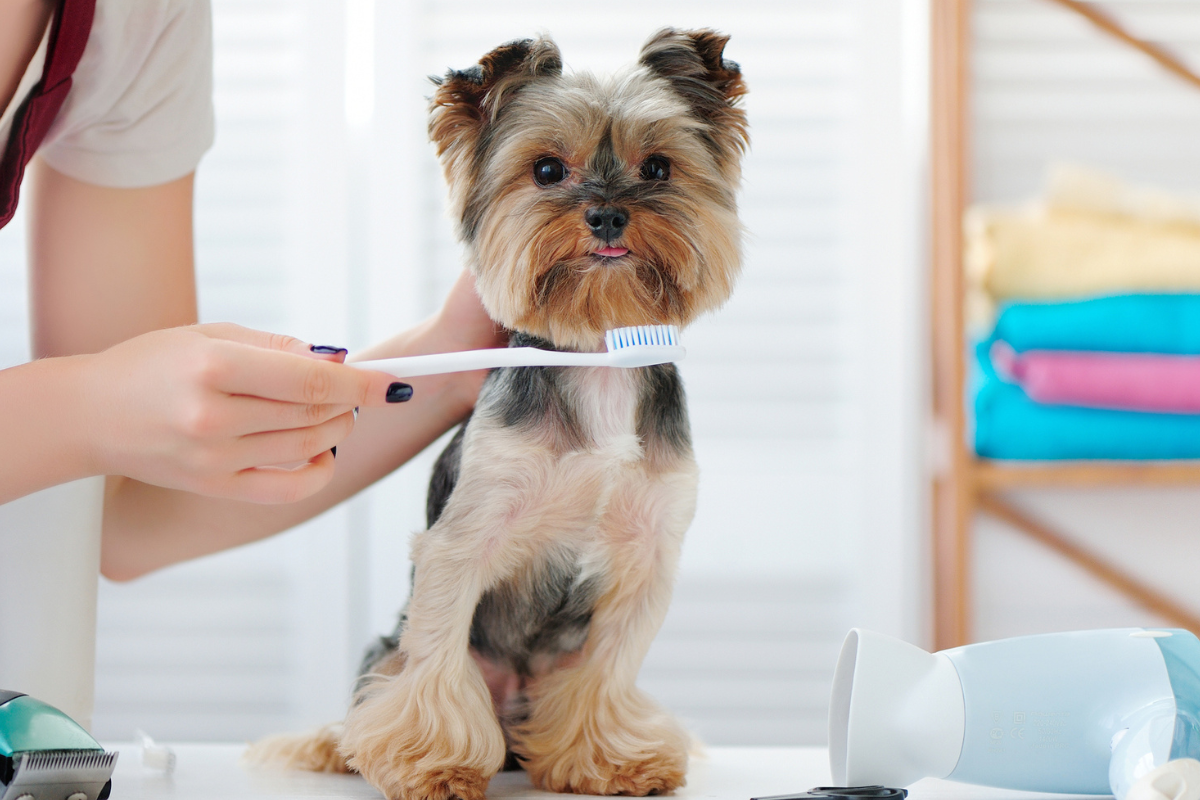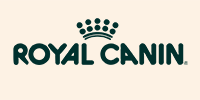Taking care of your dog’s teeth is crucial for their overall health at all stages of life. Regular dental care plays a key role in preventing gum disease in dogs, as well as the build-up of plaque and tartar, which can lead to smelly breath and tooth decay. These issues can cause pain and discomfort, effecting your dog’s ability to eat comfortably and diminish their overall quality of life.
We give you tips on how to establish a good dental health routine with your dog and what to change depending on their life stage.
Why is dog dental care important?
Dogs can develop many dental diseases – especially due to their diet and lifestyle. Caring for your dog’s teeth and gums isn’t only about dental care, poor oral hygiene can impact the health of other organs in their body. Bacteria from their mouth can enter the bloodstream and potentially cause or exacerbate systemic health issues such as heart disease and kidney disease. Proper dental care can help reduce the risk of these complications.
Lifestages
Your dog’s teeth will change over the course of their life so it’s important to tailor your dental care routine depending on their age. Here are some things to keep in mind and strategies to implement at their different life stages.
Quick links:
Puppy (0-6 months)
Adolescent (7-17 months)
Adult (18 months-6 years)
Senior (7-12 years)
Golden oldie (13+ years)
Puppy
Begin regularly brushing your puppy’s teeth and massaging their gums when they’re young. Not only does this promote the growth of healthy teeth and gums, it also helps them get used to the process early on. Watch out for bites on your first few tries and reach out to your vet if you need support and guidance.
Vet tip: Don’t be alarmed when you notice your puppy losing their baby teeth, this is a normal process when their adult teeth start to come through.
Age range: puppy 0–6 months
Adolescent
Brushing your dog’s teeth to prevent plaque and tartar build-up, along with regular check-ups can help prevent issues. If you didn’t establish a brushing routine when your dog was a puppy, now is the time to begin. Take your dog in for a check-up with your vet to assess their teeth and gums and ask them for tips if you’re unsure how to brush your dog’s teeth.
Teeth cleaning is only one aspect of caring for your adolescent dog’s teeth, a balanced diet can also help to promote good dental health. Consider incorporating dental-specific diets or treats that help reduce plaque and tartar build-up.
Age range: adolescent 7–17 months
Adult
As dogs grow into adulthood, they’ll have up to 42 fully grown teeth. Around 80% of dogs over three years old deal with dental diseases such as gingivitis or halitosis. While these issues may start in the mouth, they can lead to more severe problems affecting the heart, liver and kidneys in the long run.
Schedule six monthly check-ups with your vet and ask them to assess your dog’s dental health – this will help them catch any issues early on. Your adult dog may also benefit from professional dental cleaning performed by your vet – the frequency will depend on your dog’s dental health and recommendations from your vet.
At home, keep an eye out for any signs of dental problems, such as bad breath, swollen gums or difficulty eating.
Age range: adult 18 months–6 years.
Senior and Golden oldies
Older dogs are more at risk of dental issues such as tartar build up, gum disease and tooth decay; however, these issues can be prevented if you’re able to provide ongoing care and a good dental hygiene routine.
Continue to brush their teeth several times per week, adjusting the frequency based on their dental health and any recommendations from your vet. Dental issues can be painful for senior dogs, so it’s important to chat with your vet about managing any discomfort they might have.
By prioritising dental health and using these tips from a young age you can help ensure your senior dog enjoys good oral health and overall wellbeing into their golden years.
Age range: seniors 7–12 years and golden oldies 13+ years.
Symptoms to watch out for
Keep a close eye on the dental health of your dog by watching out for the following symptoms:
- Smelly breath
- Inflamed or bleeding gums
- Increased drooling
- Loose teeth
- Discoloured teeth
- Facial swelling
- Decreased appetite
Any of these symptoms could indicate an underlying dental condition, like oral infections or gingivitis. Reach out to your vet as soon as you notice unusual symptoms in your dog.
Dental care beyond brushing
Besides making teeth brushing a regular part of your dog’s dental routine, there are additional steps you can include to help keep your dog’s teeth and gums clean and healthy.
- Dental food: specifically, designed to reduce plaque, stain and tartar buildup.
- Dental chews: treats designed to clean teeth as your dog enjoys a good gnaw.
- Food additives: can soften and remove tartar buildup, prevent new tartar formulation and reduce bad breath.
- Water additives: designed to supplement other dental remedies and freshen breath.
Just like humans, keeping up with regular dental check-ups for your dog is key to maintaining good oral health throughout their life.
Book an appointment for a dental check-up and find out if your clinic offers the Best for Pet wellness plan to receive a $250 discount on dental cleaning.







